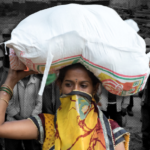
reproductive leave can help women in balancing work and fertility demands
Balancing work, home, and reproduction is traditionally a burden carried by women for many years across the world. However, the art of balancing everything often comes at a personal cost. It is important to note that the fertility rate has been steadily coming down across the world. The average number of women giving birth is falling. In most cases, when a woman cannot get pregnant, it is due to being overworked. Falling fertility means every country could have a shrinking population in the near future.
According to the BBC, 23 nations are expected to see their populations halved by 2100. In 1950, women were having an average of 4.7 children in their lifetime. However, now the number falls below 2.1 children.
Related Posts
Overwork leads to falling in fertility rates
In today’s world, many women work and study, as well as have greater access to contraception. It was not accessible to them earlier. Due to their working hours, women choose to have fewer children. Reportedly, there is evidence that Australian women struggle to balance the demands of IVF treatment with paid work obligations.
In Australia, the United Kingdom, India, and New Zealand, “reproductive leave” is introduced as an innovative response to help women to balance work and human reproduction. This aims to help women workers in balancing their paid work obligations with their reproductive needs and sexual health. In Australia, reproductive leave was introduced in early 2000 to solve disputes over the provision of menstrual leave. According to The Week, the policies introduced for women are also part of a global movement to normalize reproductive demands and help people in managing their life and work. This is applicable even for cisgender, transgender, gender diverse, and non-binary people. Many countries are now acknowledging menstrual and reproductive leaves.

















